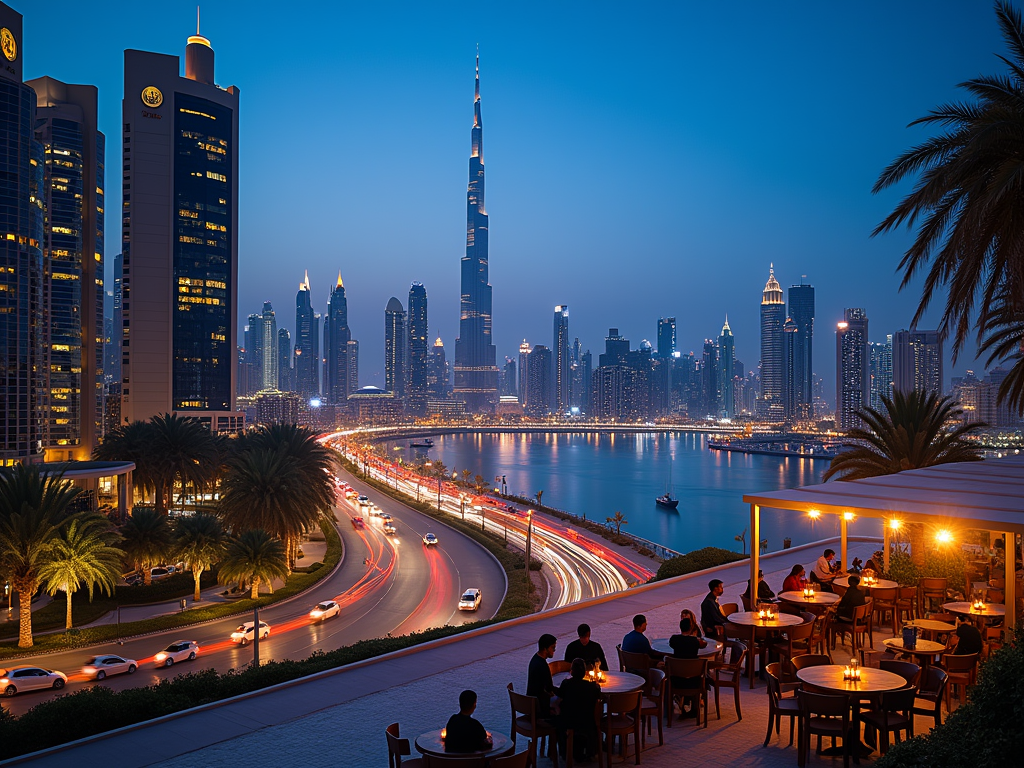Dubai stands out as a premier investment destination in the hospitality and tourism sectors, thanks to its strategic location, booming economy, and innovative infrastructure. With a consistent influx of tourists and a diverse range of attractions, this vibrant city has positioned itself as a global hotspot. Investors have recognized Dubai’s potential, fueled by government initiatives like the Dubai Tourism Vision 2025 aimed at increasing tourist numbers and enhancing visitor experiences. The hospitality sector, in particular, offers substantial returns due to high occupancy rates and diverse accommodation options. This article delves into the multifaceted investment opportunities in these lucrative sectors.
Key Drivers of Tourism Growth in Dubai

Dubai’s tourism sector has been undoubtedly driven by several key factors, making it an attractive landscape for investment. These drivers include the following:
- Government Vision: The Dubai Tourism Vision 2025 aims to attract 20 million visitors annually by 2025, ensuring continuous growth.
- World-Class Infrastructure: The city boasts top-notch facilities such as the Dubai Mall, Burj Khalifa, and an extensive transportation network, enhancing visitor satisfaction.
- Diverse Attractions: From luxurious shopping to thrilling adventure parks and cultural landmarks, there’s something for every type of traveler.
- Business Hub: Many multinational corporations set their regional headquarters in Dubai, fostering business travel and events.
- Safety and Security: High standards of safety attract families and international tourists alike, providing peace of mind while traveling.
Real Estate Opportunities in the Hospitality Sector

Investing in real estate within the hospitality sector of Dubai presents lucrative opportunities, especially as the demand for hotel accommodations rises. The market offers various property types, ranging from luxury hotels to budget-friendly hostels, allowing investors to select options that align with their strategic goals. With the city’s ongoing development projects and initiatives, the hotel occupancy rates are projected to remain significantly high, appealing to stakeholders.
Some key considerations for investors looking into real estate include:
- Location: Proximity to tourist attractions, transport hubs, and business districts is critical for high occupancy rates.
- Regulatory Environment: Understanding local laws and guidelines will ease the process of property acquisition and operation.
- Market Demand: Regularly assess visitor trends to tailor offerings that meet the evolving preferences of tourists.
- Sustainability Initiatives: Increasing the focus on eco-friendly practices can enhance marketability and replace traditional operational models.
Investment in Unique Experiences
Middle Eastern culture and Dubai’s unique blend of tradition and modernity offer opportunities for investments in diverse tourist experiences. Excursions such as desert safaris, cultural shows, and culinary tours provide tourists with memorable experiences, leading to longer stays and increased spending dynamics. Innovative businesses that combine tourism with unique experiences are likely to excel.
Investors can explore several avenues, including:
- Cultural Tourism: Invest in initiatives that showcase the rich Emirati culture, arts, and heritage.
- Theme Parks: The emergence of new theme parks and entertainment complexes provides opportunities for spectacular family experiences.
- Adventure Tourism: Leveraging Dubai’s natural landscape for adventure sports can tap into the thrill-seeking market.
- Culinary Tourism: Introducing themed restaurants that offer local cuisines or global dining concepts can attract food enthusiasts.
The role of technology in the hospitality sector cannot be overlooked, as investments in technology can significantly enhance service efficiency and customer satisfaction. Innovations such as mobile check-ins, smart room technologies, and AI-driven customer service tools are becoming essential in modern hotels. Integrating technology effectively can lead to improved operational efficiencies, ultimately resulting in increased profitability.
Conclusion
Dubai’s hospitality and tourism sectors represent a dynamic investment landscape, characterized by robust growth and countless opportunities. With government support, strategic planning, and a focus on unique experiences, investors can capitalize on this thriving market. While the competition is intense, the potential for high returns makes investing in Dubai’s tourism sector a worthwhile venture.
Frequently Asked Questions
1. What are the key factors driving tourism in Dubai?
The key factors include government initiatives like the Dubai Tourism Vision 2025, world-class infrastructure, diverse attractions, a strong business hub, and a safe environment for tourists.
2. What types of real estate investments are available in Dubai’s hospitality sector?
Investors can explore options such as luxury hotels, serviced apartments, budget hotels, and hostels, each catering to different market segments.
3. How can I ensure high occupancy rates in my hospitality investment?
Focus on prime locations, understand market demands, adhere to regulations, and consider sustainability practices to enhance attractiveness to visitors.
4. What new experiences can attract tourists in Dubai?
Unique experiences such as cultural tours, desert safaris, culinary adventures, and themed entertainment parks can significantly draw tourists to your offerings.
5. How is technology influencing the hospitality industry in Dubai?
Technology enhances customer experience through innovations like mobile check-ins, smart room technologies, and AI tools, leading to improved operational efficiency and satisfaction.
